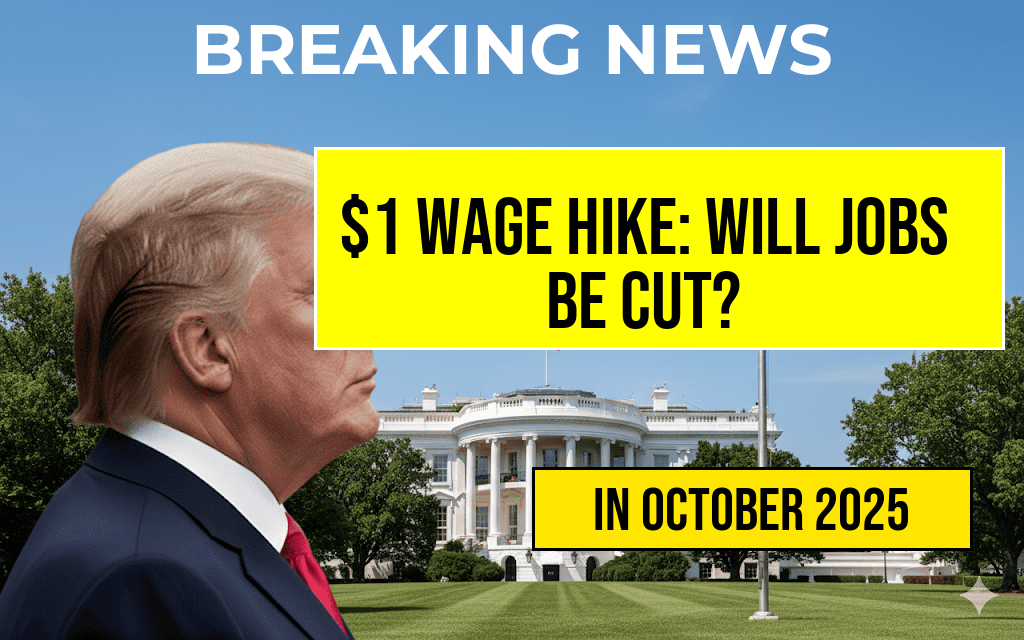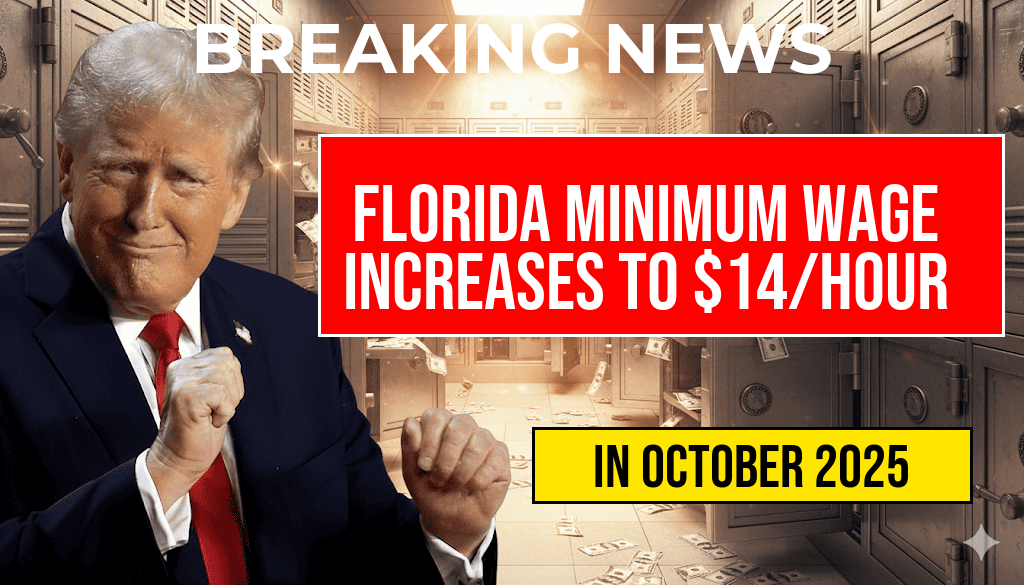As discussions around wage increases gain momentum, small businesses are grappling with potential implications of a proposed $1 increase in minimum wage. Advocates argue that raising wages could enhance worker morale and stimulate consumer spending, while opponents warn that such increases might lead to layoffs or reduced hiring. The debate has intensified as lawmakers consider legislation that could affect millions of workers across the nation. Small businesses, which form the backbone of the U.S. economy, are particularly vulnerable to changes in wage policies. This article explores the potential impact of a $1 wage increase on small businesses and their workforce.
The Current Landscape of Minimum Wage
As of October 2023, the federal minimum wage stands at $7.25 per hour, a rate that has remained unchanged since 2009. Many states and municipalities have enacted higher minimum wages, reflecting growing public support for wage increases. According to the U.S. Department of Labor, 29 states and the District of Columbia have set their minimum wages above the federal level, with some reaching upwards of $15 per hour.
Potential Benefits of a Wage Increase
- Boosted employee morale: Higher wages can lead to increased job satisfaction, reducing turnover rates.
- Increased consumer spending: Workers with higher incomes are likely to spend more, benefiting local economies.
- Attracting talent: Competitive wages can help businesses attract and retain skilled workers.
Concerns Among Small Business Owners
Despite the potential benefits, many small business owners express concerns about the feasibility of a $1 wage increase. A survey conducted by the Small Business Administration found that 58% of small businesses believe a wage hike would force them to reduce their workforce or cut hours. This sentiment is particularly prevalent in industries with tight profit margins, such as retail and food service.
| Response | Percentage of Small Business Owners |
|---|---|
| Reduce workforce | 35% |
| Cut hours | 23% |
| Increase prices | 40% |
| No impact | 2% |
Real-World Examples
Several small business owners have shared their experiences with wage increases. For instance, a café owner in Seattle, where the minimum wage has already been raised to $15 per hour, reported that the increase led to higher labor costs, forcing her to increase menu prices and reduce employee hours. Conversely, a small marketing firm in Austin noted that higher wages allowed them to attract more qualified candidates, ultimately leading to increased productivity and growth.
The Role of Automation and Technology
In response to rising labor costs, some small businesses are turning to automation and technology. Implementing software solutions and automated systems can help reduce reliance on human labor, thereby mitigating the impact of wage increases. According to a report from the McKinsey Global Institute, businesses that invest in technology often see improved efficiency and reduced operational costs in the long term. However, this shift may also lead to fewer entry-level job opportunities, particularly in sectors heavily reliant on low-wage labor.
Looking Ahead
The discussion surrounding a $1 wage increase is part of a broader conversation about income inequality and the sustainability of small businesses. As lawmakers deliberate potential legislation, small business owners are encouraged to voice their concerns and share their experiences. The impact of wage increases varies widely depending on the industry, geographic location, and individual business circumstances. Understanding these nuances is crucial for developing policies that support both workers and the small businesses that employ them.
As the debate continues, stakeholders from various sectors must engage in dialogue to find solutions that balance fair wages with the economic realities faced by small businesses. The outcome of this discussion will not only shape the future of labor in the U.S. but also influence the livelihoods of millions of workers and business owners across the country.
Frequently Asked Questions
What is the impact of a $1 wage increase on small businesses?
A $1 wage increase can significantly affect small businesses, potentially leading to increased labor costs. Some businesses may struggle to absorb these costs, which could result in layoffs or reduced hiring.
Will all small businesses be affected by a $1 wage increase?
Not all small businesses will experience the same level of impact. Factors such as industry type, profit margins, and the local economy will dictate how a wage increase affects individual businesses.
Can a wage increase benefit small businesses in the long run?
Yes, a $1 wage increase can potentially benefit small businesses in the long run by improving employee morale and reducing turnover, which can lead to increased productivity and lower hiring costs.
What alternatives do small businesses have instead of laying off workers?
Small businesses may consider alternatives such as reducing hours, increasing prices, or finding ways to improve operational efficiency rather than resorting to layoffs.
How do consumers respond to wage increases in small businesses?
Consumers often support wage increases as they can lead to better service and higher quality products. However, if prices rise significantly as a result, consumer behavior may change, affecting small businesses.












